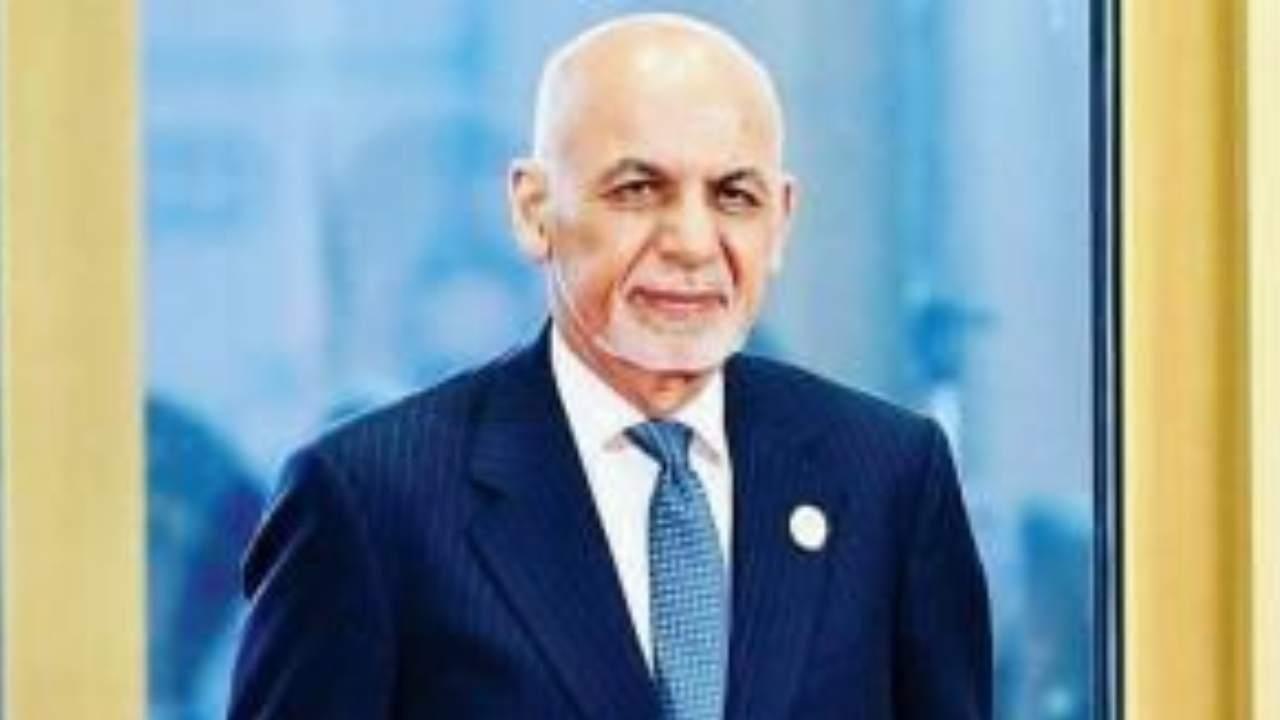Ghani in his first comments after he left Afghanistan said on Sunday he was faced with a "hard choice" between the 'armed Taliban' who wanted to enter the Presidential Palace or 'leaving the dear country that I dedicated my life to protecting the past 20 years'

Afghanistan President Ashraf Ghani
Embattled Afghanistan President Ashraf Ghani has said he left Kabul to avoid bloodshed and a "big human disaster" in the city of six million people, urging the Taliban to reveal their intentions and reassure the people who are unsure about their future after the insurgents took over the war-torn country.
ADVERTISEMENT
Taliban insurgents swept into Afghanistan's capital on Sunday after a sudden and unprecedented collapse of the government, prompting president Ghani to join fellow citizens and foreigners to leave the country.
Ghani in his first comments after he left Afghanistan said on Sunday he was faced with a "hard choice" between the "armed Taliban" who wanted to enter the Presidential Palace or "leaving the dear country that I dedicated my life to protecting the past 20 years".
"If there were still countless countrymen martyred and they would face the destruction and destruction of Kabul city, the result would have been a big human disaster in this six million city. The Taliban have made it to remove me, they are here to attack all Kabul and the people of Kabul. In order to avoid the bleeding flood, I thought it was best to get out," Ghani said in a Facebook post on Sunday.
Also read: US to expand its security presence at Kabul airport to 6,000 troops
"Taliban have won the judgement of sword and guns and now they are responsible for protecting the countrymen's honor, wealth and self-esteem. Didn't they win the legitimacy of hearts? Never in history has dry power given legitimacy to anyone and won't give it to them," the 72-year-old politician, reportedly taking shelter in neighbouring Tajikistan, said.
Ghani said the Taliban insurgents are now facing a new historical test of either to protect the name and honour of Afghanistan or prioritising other places and networks.
He said that to win legitimacy and the hearts of people who are in fear and unsure of their future, it is necessary for the Taliban to assure all people, nations, different sectors, sisters, and women of Afghanistan.
"Make a clear plan to do and share it with the public. I will always continue to serve my nation with an intellectual moment and a plan to develop. Lots more talk for the future," he added.
An academic and economist, Ghani is the 14th President of Afghanistan. He was first elected on September 20, 2014 and was re-elected in the September 28, 2019 presidential election.
He was announced the winner after a protracted process in February 2020 and was sworn in for a second term on March 9 last year. An anthropologist by education, he previously served as Minister of Finance and the Chancellor of Kabul University.
The Taliban on Sunday seized the last major city outside of Kabul held by the country's central government, cutting off the Afghan capital to the east.
The collapse of Jalalabad leaves Afghanistan's central government in control of just Kabul and six other provincial capitals out of the country's 34.
Taliban insurgents began moving towards Kabul following the overnight collapse of the two remaining cities of Mazar-e-Sharif and Jalalabad.
US President Joe Biden in April announced that all American troops would be withdrawn from Afghanistan by September 11 this year, thus bringing to end the country's longest war, spanning across two decades.
The Taliban ruled Afghanistan from 1996 to 2001, but following the September 11, 2001 attacks on the United States, the brutal regime of the militant group came to end as they were removed from power by US-led forces in 2001.
The group, however, has been on the offensive in recent months and is now on the brink of seizing power again. They entered direct talks with the US in 2018, and in February 2020.The two sides struck a peace deal in Doha that committed the US to withdrawal and the Taliban to preventing attacks on US forces.
But in the year that followed, the Taliban continued to target Afghan security forces and civilians, and advanced rapidly across the country.
This story has been sourced from a third party syndicated feed, agencies. Mid-day accepts no responsibility or liability for its dependability, trustworthiness, reliability and data of the text. Mid-day management/mid-day.com reserves the sole right to alter, delete or remove (without notice) the content in its absolute discretion for any reason whatsoever.
 Subscribe today by clicking the link and stay updated with the latest news!" Click here!
Subscribe today by clicking the link and stay updated with the latest news!" Click here!






